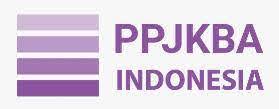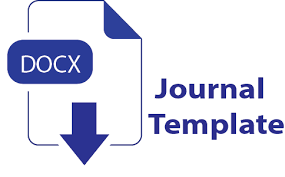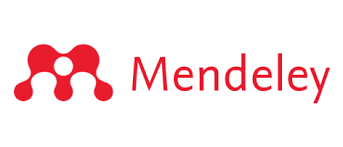The Mind-Machine Duality in Carving Meaning: ChatGPT and Self Regulated Learning in Arabic Research
DOI:
https://doi.org/10.58223/al-irfan.v8i1.470Keywords:
Chatgpt, Self-Regulated Learning, Arabic Academic Writing, Thesis Development, AI in EducationAbstract
This study investigates the dual influence of ChatGPT and Self-Regulated Learning (SRL) strategies on the academic writing performance of students in Arabic Language Education programs. With the increasing integration of artificial intelligence tools in higher education, it is essential to understand how these technologies interact with traditional learning strategies, particularly in writing scholarly theses in Arabic—a language that presents unique structural and stylistic challenges. The primary objective of this study is to evaluate the extent to which ChatGPT and SRL affect students’ ability to produce well-structured and linguistically accurate Arabic bachelor's theses. A quantitative survey method was employed, involving 56 students across three academic semesters. Data analysis was conducted using SmartPLS 4.0 to measure the impact of both variables. The findings indicate that both ChatGPT and SRL significantly enhance students' thesis writing skills. Notably, ChatGPT has a slightly greater influence, particularly in the areas of idea development, content organization, and advanced language use. Meanwhile, SRL remains crucial for time management, intrinsic motivation, and reflective evaluation. These results underscore the complementary roles of AI assistance and self-regulated strategies in academic writing. The study contributes to the growing discourse on the ethical and pedagogical implications of AI in education, particularly in the context of Arabic language scholarship. It recommends a balanced pedagogical model that integrates AI tools like ChatGPT with structured SRL frameworks to optimize student performance and uphold academic integrity.
References
Abdelali, A., Durrani, N., & Demiroglu, C. (2022). NatiQ : An End-to-end Text-to-Speech System for Arabic. Proceedings Ofthe The Seventh Arabic Natural Language Processing Workshop (WANLP), 394–398. https://aclanthology.org/2022.wanlp-1.38/
Aidah Novianti Putri, & Moh. Abdul Kholiq Hasan. (2023). Penerapan Kecerdasan Buatan sebagai Media Pembelajaran Bahasa Arab di Era Society 5.0. Tarling : Journal of Language Education, 7(1), 69–80. https://doi.org/10.24090/tarling.v7i1.8501
Allifia Sri cahyani, Ubadah, & Arda. (2023). Pengaruh Model Pembelajaran Berbasis Game Wordwall Terhadap Kemampuan Peserta Didik Dalam Penguasaan Kosakata Bahasa Arab Kelas VIII MTsN 2 Kota Palu. Albariq: Jurnal Pendidikan Bahasa Arab, 4(1), 1–11. https://doi.org/10.24239/albariq.v4i1.41
Farhan Mubarok Lubis. (2024). DIKTAT MATA KULIAH BAHASA ARAB.
Hair, J. F., Risher, J. J., Sarstedt, M., & Ringle, C. M. (2019). When to use and how to report the results of PLS-SEM. European Business Review, 31(1), 2–24. https://doi.org/10.1108/EBR-11-2018-0203
Hamdy, M. Z., & Ningsih, W. P. (2022a). Inovasi Media Pembelajaran Bahasa Arab Menggunakan Game Resident Evil 8 Village. STAI DUBA Press.
Hamdy, M. Z., & Ningsih, W. P. (2022b). Media Game Resident Evil 8 - Village dalam Pembelajaran Keterampilan Membaca dan Menulis. Al-Fathin: Jurnal Bahasa Dan Sastra Arab, 5(1), 104–124. https://doi.org/10.32332/al-fathin.v5i01.4037
Holmes, W., Maya, B., & Fadel, C. (2019). Artificial Intelligence In Education Promises and Implications for Teaching. In Journal of Computer Assisted Learning (Vol. 14, Issue 4). Center for Curriculum Redesign. https://onlinelibrary.wiley.com/doi/10.1046/j.1365-2729.1998.1440251.x
Inayah, M., Hariaty, Y., Retno Syahfitri, D., & Aliwijaya, A. (2024). Eksplorasi Penggunaan Artificial Intelligence dalam Pencarian Referensi Karya Ilmiah: Studi Kasus Mahasiswa Pascasarjana Universitas Gadjah Mada. Conference: Prosiding Seminar Nasional Perpustakaan Institut Seni Indonesia (ISI) Surakarta - Nstitut Seni Indonesia (ISI) Surakarta, Indonesia.
Indrayanto, M. Q. (n.d.). View of Pengaruh Self Regulated Learning terhadap Hasil Belajar Bahasa Arab Siswa SMA Negeri 20 Gowa.
Irwandi Setiawan. (2020). PENERAPAN TEKNIK SELF REGULATED LEARNING DALAM MEREDUKSI TINGKAT ACADEMIC BURNOUT SISWA DI SEKOLAH MAN 1 WATANSOPPENG. JURUSAN PSIKOLOGI PENDIDIKAN DAN BIMBINGAN FAKULTAS ILMU PENDIDIKAN UNIVERSITAS NEGERI MAKASSAR.
Maulidiya, A. R., Abdurrahman, M., & Saleh, N. (2024). Exploring AI Capabilities in Arabic Grammar : Comparative Analysis of ChatGPT and Gemini. Arabiyat : Jurnal Pendidikan Bahasa Arab Dan Kebahasaaraban, 11(2), 160–174. https://journal.uinjkt.ac.id/index.php/arabiyat/article/view/42671
Nurdianto, T., & Ismail, N. A. bin. (2020). Pembelajaran Bahasa Arab Berbasis Common European Framework Of Reference For Language ( CEFR ) Di Indonesia. Al Mahāra: Jurnal Pendidikan Bahasa Arab, 6(1), 13. https://doi.org/10.14421/almahara.2020.061-01
Patty, J., & Que, S. R. (2023). PEMANFAATAN ARTIFICIAL INTELLIGENCE (AI) DALAM PENULISAN ARTIKEL ILMIAH. Jurnal Pengabdian Masyarakat.
Pera Aprizal, A. (2021). Urgensi Pembelajaran Bahasa Arab dalam Pendidikan Islam. Jurnal Pendidikan Guru, 2(2), 39–56. https://doi.org/10.47783/jurpendigu.v2i2.232
Rahayu Balai Diklat Keagamaan Ambon, S., & Laksdya Leo Wattimena, J. (2024). Pemanfaatan Artificial Intelligence (AI) dalam Penulisan Artikel Ilmiah. Prosiding PITNAS Widyaiswara, 1, 429–437.
Rosyad, M. S. (2022). Tashmim Ikhtibar al-Lughah al-Arabiyah Fi Dhaui adz-Dzaka’ al-Ishtina’iy: Anmudzajan Voicemaker (Tajribah Markazi al-Lughat Fi Shiyaghah Nusus Fahmi al-Masmu’ Laday TOAFL). Insyirah: Jurnal Ilmu Bahasa Dan Studi Islam, 5(1), 1–16. https://doi.org/https://doi.org/10.26555/insyirah.v5i1.5372
Shao, S., Alharir, S., Hariri, S., Satam, P., Shiri, S., & Mbarki, A. (2022). AI-based Arabic Language and Speech Tutor. IEEE. https://ieeexplore.ieee.org/document/10017924/
Subiyantoro, H., Hartono, R., & ... (2023). Dampak kecerdasan buatan (AI) terhadap pengajaran Bahasa Inggris di perguruan tinggi: Tantangan dan peluang. Prosiding Seminar ….
Theobald, M. (2021). Self-regulated learning training programs enhance university students’ academic performance, self-regulated learning strategies, and motivation: A meta-analysis. Contemporary Educational Psychology, 66. https://doi.org/10.1016/j.cedpsych.2021.101976
Zhang, W., Liu, B., & Wilson, A. J. (2024). Examining Chinese EFL learners’ online self-regulated learning: A mixed-methods approach. System, 123, 103277. https://doi.org/10.1016/J.SYSTEM.2024.103277
Zuhri, N. Z., Syihabuddin, S., & Tatang, T. (2024). Analisis Validitas, Reliabilitas, dan Tingkat Kesukaran Soal Bahasa Arab Tingkat SMP Berbasis Artificial Intelligence (AI) melalui Platform QuestionWell. Jurnal Pendidikan Dan Pembelajaran Indonesia (JPPI), 4(2), 693–704. https://doi.org/10.53299/jppi.v4i2.576
Downloads
Published
How to Cite
Issue
Section
License
Copyright (c) 2025 Devi Surya Aljanah, Koderi, Muhammad Akmansyah

This work is licensed under a Creative Commons Attribution 4.0 International License.
Lisensi :
Al-Irfan: Journal of Arabic Literature and Islamic Studies is published under conditions Creative Commons Attribution 4.0 International License / CC BY 4.0 This license permits anyone to copy and redistribute this material in any form or format, modify, modify, and make derivative works of this material for any purpose, including commercial purposes, so long as they credit the author for the original work.











